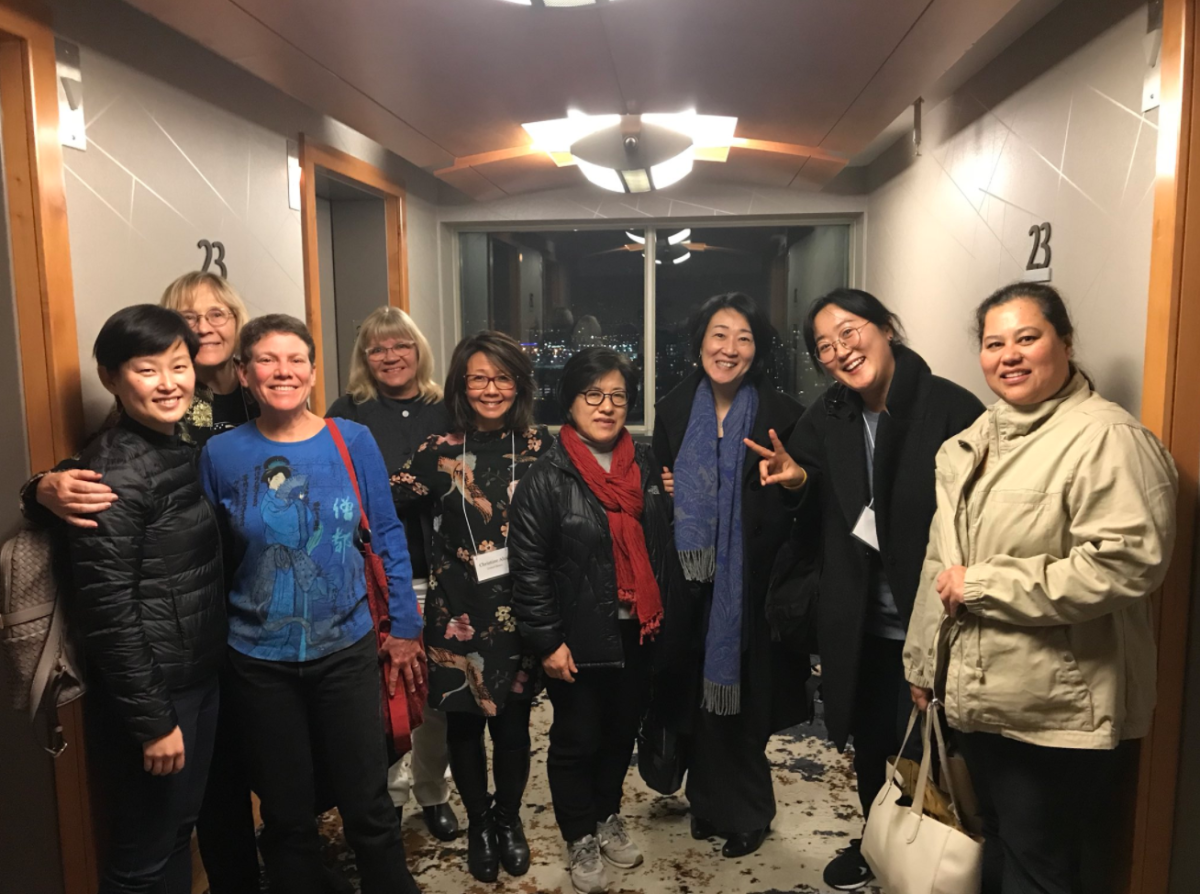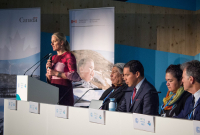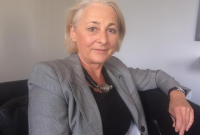Support strong Canadian climate journalism for 2025
In less than 24 hours, Canada will co-host a high-profile summit featuring foreign ministers from countries that participated in the Korean War.
Hosted in partnership with the United States in Vancouver, the event comes at a fortuitous time.
For the first time in two years, the two Koreas have sat down for talks in which North Korea agreed to send athletes to the winter Olympics in South Korea's Pyeongchang. The U.S. and South Korea have also agreed to delay their joint annual military exercises to honour the age-old Olympic Truce.
The conditions are ripe for a diplomatic breakthrough, yet a heavy cloud hangs over Vancouver.
As President Donald Trump tweeted about his “bigger and more powerful” nuclear weapons, hawks in the White House weigh a pre-emptive strike against North Korea.
Given that 25 million people would be impacted by a military conflict on the Korean Peninsula, war is unfathomable. But make no mistake, America's current approach of maximum pressure on sanctions and isolation is akin to slow death as millions of North Koreans will struggle to have adequate food and fuel to cook and heat their homes.
Women indispensable in the peace process
This Draconian approach, Trump claims, is what led to the diplomatic breakthrough between the two Koreas. Sadly, Canada is regurgitating the U.S. line by stating that the aim of the summit is “to demonstrate solidarity in opposition to North Korea’s dangerous and illegal actions.”
If Canada is willing to engage with North Korea because the U.S. isn’t, as Prime Minister Justin Trudeau hinted last November, they will need a new and fresh approach.
On the bright side, the summit comes on the heels of the launch of Canada’s National Action Plan on Women, Peace and Security — signed and endorsed by five cabinet ministers — which sets out Canada’s plans to implement global commitments to increase women’s participation to prevent and resolve conflict and promote peace (including United Nations Security Council Resolutions).
A champion of women in peace negotiations, Canada’s Foreign Affairs Minister Chrystia Freeland recently affirmed that, "The path to peace needs empowered women. Where women are included in peace processes, peace is more enduring.”
In fact, research shows that involving women in peace processes not only leads to peace agreements, but also more durable ones. A major study of 40 peace processes, showed that of 182 signed peace accords, an agreement was reached in all but one case when women’s movements influenced the peace process.
As the co-host of the summit with U.S. Secretary Rex Tillerson, Freeland is in a leadership position to give substance to Canada’s emerging Feminist Foreign Policy. She is in good company with South Korean Foreign Minister Kyung-wha Kang who has said, “Another war on the Korean Peninsula must not happen,” and that the conflict must be resolved “in a peaceful, diplomatic manner.” Sweden’s Margot Wallström, who sharply condemned Trump’s UN speech as “in breach of the UN charter” when he threatened “to totally destroy” North Korea, also makes a valuable addition.

There's a delegation of experts, ready and waiting
Recognizing the dangerous yet incredibly opportune moment that the Vancouver Foreign Ministers’ Meeting on Security and Stability on the Korean Peninsula affords, a delegation of 16 women representing movements from across Asia, Europe and North America is pressing for our inclusion in the meetings.
This delegation has expertise in nuclear disarmament, economic sanctions, conflict mediation, military operations and humanitarian aid. Many have devoted their lives to understanding the Korean conflict, delving deeply into the human, social and ecological costs of the unresolved Korean War.
Unlike most of the invited foreign ministers, these women have deep knowledge and key insights from engaging directly with North Koreans on peace and humanitarian aid initiatives.
The Canadian government has invited a few of us to participate in a civil society roundtable on Jan. 15, the day before the official summit begins. While this is a kind gesture, it is no substitute for meaningful engagement with foreign ministers or real influence of the peace process.
We have no illusions about the difficulty and complexity of the 65-year-old Korean War and the pressures of geopolitics. But evidence clearly shows that to reach a comprehensive and lasting peace agreement women and civil society actors who have engaged with North Koreans through citizen diplomacy, humanitarian aid, and educational exchanges must be at the table.
We stand ready to join the foreign ministers and prepare peace talks to finally end the Korean War.
— Liz Bernstein is the executive director of the Ottawa-based Nobel Women’s Initiative. Christine Ahn is the international coordinator of the U.S.-based Women Cross DMZ, a movement of women mobilizing for peace in Korea.







Comments